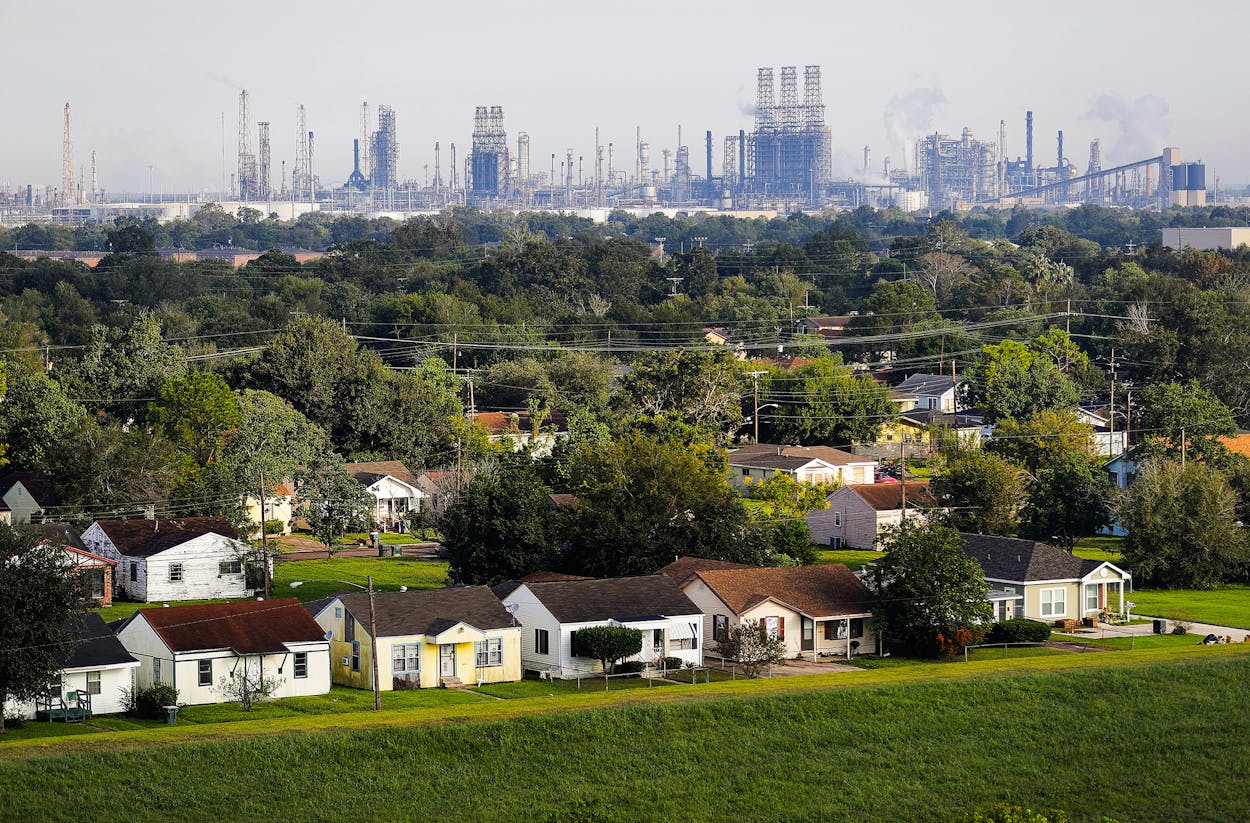New York City trained its sights on the world’s five largest publicly traded oil companies last week, suing them in federal court to try to recoup money the city is spending to build resiliency to climate change. Two Texas-based companies, ExxonMobil and ConocoPhillips, were named among the defendants in the suit, filed in the Southern District of New York. The other defendants are BP, Chevron, and Royal Dutch Shell.
“This lawsuit is based upon the fundamental principle that a corporation that makes a product causing severe harm when used exactly as intended should shoulder the costs of abating that harm,” the lawsuit opens, holding that these companies have known for years that fossil fuels are heat trapping gasses, and that burning them will raise the global temperature. Included in this first filing is a November 1982 memo from a manager in Exxon’s Environmental Affairs Program titled “Range of Global Mean Temperature from 1850 to the Present with the Projected Instantaneous Climatic Response to Increasing CO2 Concentrations.”
In a statement, New York City Mayor Bill de Blasio said: “We’re bringing the fight against climate change straight to the fossil fuel companies that knew about its effects and intentionally misled the public to protect their profits.”
The named defendants “are collectively responsible, through their production, marketing, and sale of fossil fuels, for over 11 percent of all the carbon and methane pollution from industrial sources that has accumulated in the atmosphere since the dawn of the Industrial Revolution,” the suit alleges. “Additionally, Defendants are also responsible for leading the public relations strategy for the entire fossil fuel industry, downplaying the risks of climate change and promoting fossil fuel use despite the risks.”
The lawsuit continues that these oil companies were aware of the risks themselves, and even “acted on this knowledge to protect their own infrastructure and assets,” while telling the public “a very different story.” The suit argues that the defendants, who continued “producing, marketing, and selling fossil fuels for decades and at ever more dangerous levels while knowing of the harm that was substantially certain to result” means these actions amount to a public and private nuisance, as well as an illegal trespass on city property. Through this lawsuit, New York City is hoping to recover some of the money it is spending to protect itself from climate change’s impacts.
Scott Silvestri, a spokesman for ExxonMobil minced no words about the company’s stance on the lawsuit in a statement. “Reducing greenhouse gas emissions is a global issue and requires global participation and actions,” Silvestri said. “Lawsuits of this kind—filed by trial attorneys against an industry that provides products we all rely upon to power the economy and enable our domestic life—simply do not do that.”
Last year, several communities in California, including San Francisco, filed similar lawsuits against fossil fuel companies. ExxonMobil responded to one of those suits in state court in Texas, claiming the company was the target of a “conspiracy” cooked up by a “collection of special interests and opportunistic politicians” and seeking to depose lawyers for the communities that brought those lawsuits.
Michael Burger, executive director for Columbia University’s Sabin Center for Climate Change Law, told CNN he “can’t imagine any court will treat [ExxonMobil’s complaints] seriously,” he said. “It wouldn’t be farfetched to see this as an attempt to harass the officials in the lawsuit as a way to scare them off of it.”







